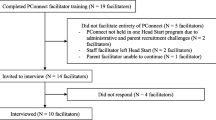Abstract
Aim
To utilize meta-leadership in the implementation of the Farm to School model for improving childhood nutrition and for promoting local agriculture in Fayette County, Kentucky.
Methods
The Farm to School model incorporates a systems-based approach to address some of the major underlying causes of childhood obesity including behavioral and environmental elements. This validated approach requires effective leadership and partnership for success. The concept of meta-leadership provides an excellent framework to implement the Farm to School model in a community. These paradigms were applied to create new programs for Fayette County, Kentucky.
Results
Meta-leadership practices were utilized to strategically coordinate the efforts of various partners. Such an approach befitted the multidisciplinary, partnership-oriented nature of public health. The meta-leader leveraged influence of public and private partners to achieve far-reaching impact across the community. Boundaries of individual organizations were transcended to connect the goals of various stakeholders. The meta-leader emphasized cooperative decision-making and connectivity through effective communication and coordination. He helped bridge organizational systems to promote intentional networking and cohesion. The sustainable approach created infrastructures for further development and implementation of programs well beyond the meta-leader′s involvement.
Conclusion
Meta-leadership provided the foundation to implement the validated Farm to School model to help reduce childhood obesity and to help stimulate the local economy in Fayette County, Kentucky. These innovative paradigms were successfully utilized by the leader to mobilize various community partners and to leverage the resources of several organizations across public and private sectors. Preliminary successes were rapidly achieved for the local community.
Similar content being viewed by others
References
Biro FM, Wien M (2010) Childhood obesity and adult morbidities. Am J Clin Nutr 91(5):1499S–1505S. doi:10.3945/ajcn.2010.28701B
CDC (2010) Obesity: halting the epidemic to make health easier: at a glance 2010. National Center for Chronic Disease Prevention and Health Promotion; Centers for Disease Control and Prevention; Atlanta, GA
Eaton DK, Kann L, Kinchen S, Shanklin S, Harris WA, Lowry R, McManus T, Chyen D, Lim C, Whittle L, Brener ND, Wechsler H, Ross J, Hawkins J (2010) Youth risk behavior surveillance: United States, 2009. Morb Mortal Wkly Rep 59(5):1–142
Griffiths LJ, Page AS (2008) The impact of weight-related victimization on peer relationships: the female adolescent perspective. Obesity (Silver Spring) 16(Suppl 2):S39–S45. doi:10.1038/oby.2008.449
Joshi A, Azuma AM (2009) Bearing fruit: Farm to School program evaluation—resources and recommendations. National Farm to School Network; Center for Food & Justice; Urban & Environmental Policy Institute, Occidental College, Los Angeles, CA
Krukowski RA, Smith West D, Philyaw Perez A, Bursac Z, Phillips MM, Raczynski JM (2009) Overweight children, weight-based teasing and academic performance. Int J Pediatr Obes 4(4):274–280. doi:10.3109/17477160902846203
Levi J, Vinter S, Richardson L, St. Laurent R, Segal LM , 2009) F as in fat : how obesity policies are failing in America. Robert Wood Johnson Foundation, Trust for America’s Health, Washington, DC
Marcus LJ, Dorn BC, Henderson JM (2006) Meta-leadership and national emergency preparedness: a model to build government connectivity. Biosecur Bioterror 4(2):128–134. doi:10.1089/bsp.2006.4.128
Marcus LJ, Ashkenazi I, Dorn BC, Henderson JM (2008) Meta-leadership: expanding the scope and scale of public health. Leadership in Public Health 8(1–2), NPLI, Harvard School of Public Health, Harvard, Cambridge, MA
National Heart Lung and Blood Institute (1998) Clinical guidelines on the identification, evaluation, and treatment of overweight and obesity in adults: the evidence report. NIH publication, vol no. 98-4083. National Institutes of Health, National Heart, Lung, and Blood Institute, Bethesda, MD
The White House (2010) Let’s Move! Child Nutrition Reauthorization Healthy, Hunger-Free Kids Act of 2010. Fact Sheet, The White House, Washington, DC
Vila G, Zipper E, Dabbas M, Bertrand C, Robert JJ, Ricour C, Mouren-Simeoni MC (2004) Mental disorders in obese children and adolescents. Psychosom Med 66(3):387–394
Wang F, Wild TC, Kipp W, Kuhle S, Veugelers PJ (2009) The influence of childhood obesity on the development of self-esteem. Health Rep 20(2):21–27
Acknowledgements
The author would like to thank Kentucky Action for Healthy Kids for sponsoring the webinar which prompted his interest in Farm to School. The author would also like to thank the Centers for Disease Control and Prevention for sponsoring the Meta-Leadership Summit for Preparedness which provided him initial exposure to meta-leadership practices in public health. The author would like to recognize the Farm to School Taskforce of the Obesity Prevention Program of the Kentucky Department for Public Health for sponsoring the statewide Farm to School workshop. The author would also like to recognize the Kentucky Public Health Leadership Institute for providing motivation to implement the Farm to School model. The author is deeply indebted to the all of the partners and participants of the Fayette County Farm to School Team. They did the essential work in implementing the programs while the author only provided direction and facilitation. Some of the team members include M. Flynn, D. Seale, and M. Coker (Fayette County Public Schools: Food Service); N. Hiner, K. Jones, and M. Rowland (Lexington-Fayette County Health Department); J. Dabbelt and A. Arnold (Lexington Farmers Market); E. Trester-Wilson and M. Farris (The Arboretum: State Botanical Garden of Kentucky); L. Stewart and J. Rodabaugh (Lansdowne Elementary School); G. Tomkinson (Berries on Bryan Station CSA Farm); and J. Boykin, D. Doggett, J. Dockery, and N. Carter (Fayette County Cooperative Extension Office). Finally, the author would like to thank the children and families of Fayette County for continuing to help improve childhood nutrition and for continuing to help promote local agriculture throughout their community.
Conflict of interest
The author declares that he has no conflict of interest.
Author information
Authors and Affiliations
Corresponding author
Rights and permissions
About this article
Cite this article
Srinivasan, J. Meta-leadership in a Farm to School program: improving childhood nutrition in Kentucky. J Public Health 20, 343–346 (2012). https://doi.org/10.1007/s10389-011-0461-z
Received:
Accepted:
Published:
Issue Date:
DOI: https://doi.org/10.1007/s10389-011-0461-z




